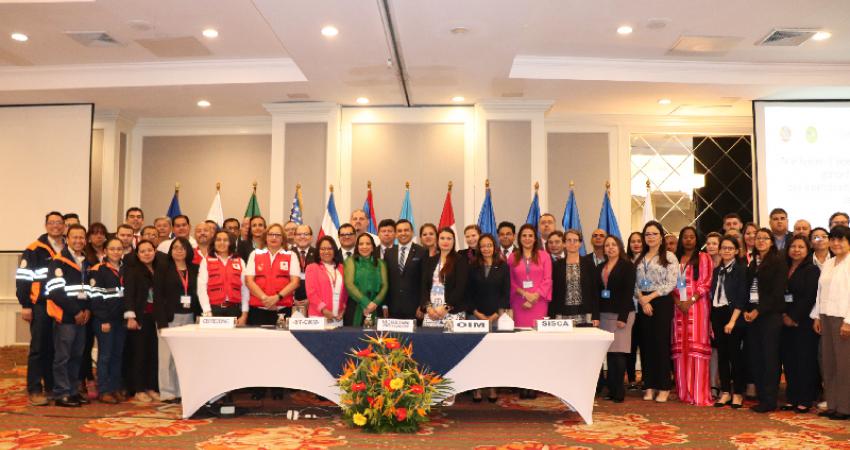Central America bolsters protocols for assistance to migrants in crisis situations

Guatemala City. Within the framework of the Regional Conference on Migration (RCM) and to follow up on the Central American Policy for Comprehensive Disaster Risk Management (PCGIR), representatives from the conference and international organizations participated in a regional workshop titled “The key role of coordination and information management in disaster situations”.
Representatives of the authorities of Canada, the United States, Mexico, Guatemala, Belize, El Salvador, Honduras, Nicaragua, Costa Rica, Panama, and the Dominican Republic participated in the event. They had the opportunity to review their national laws and policies, exchange information on best practices, and coordinate steps toward improving the inclusion of and assistance to migrants in crises, disasters, and emergencies.
As part of the activity, IOM presented the study “Migrants in Risk Reduction and Emergency Response in Central America.” This identifies the extent to which the migrant population is being incorporated into the legal and institutional frameworks of the National Risk Reduction and Emergency Response Systems of the countries of Central America, according to the primary instruments and guidelines on the issue, including the Guidelines to Protect Migrants in Countries Experiencing Conflict or Natural Disaster of the Migrants in Countries in Crisis (MICIC) Initiative.
This study also seeks to offer practical recommendations to help states’ public policies and operational frameworks consider migrants and their needs for protection during the preparation for and response to a disaster.
The analysis was based on the countries’ disaster risk reduction instruments, classified as laws, regulations and degrees (of a binding nature), policies and plans (of a programmatic and strategic nature), and finally manuals, guides, and protocols (of an operative nature), on the basis of publicly available information, in order to determine the extent to which the migrant population is being included in these national agendas.
“Migrants can play a key role in the response to these situations, demonstrating their great capacity for resilience in the recovery phase of disasters,” explained Alexandra Bonnie, coordinator of the Regional Migration Program. “This coordination between the authorities of RCM countries is an essential element for responding to these challenges.”
Between 2000 and 2018, 261 natural disasters were recorded in Central American countries and over 20 million people were affected. Additionally, the region is considered a major migration corridor, with intra-regional migration, migration to North America, return migration, and extra-regional migration, primarily in transit. Given this context, it is essential for migrants to be properly included in risk reduction and emergency response.
The regional workshop and the study are part of the activities of IOM's Mesoamerica Program, with financial support from the Bureau of Population, Refugees, and Migration (PRM) of the Department of State of the United States of America. The meeting also received support from CEPREDENAC, RCM, the Central American Integration System (SICA), and the International Federation of Red Cross and Red Crescent Societies.
A summary of the study can be downloaded here
